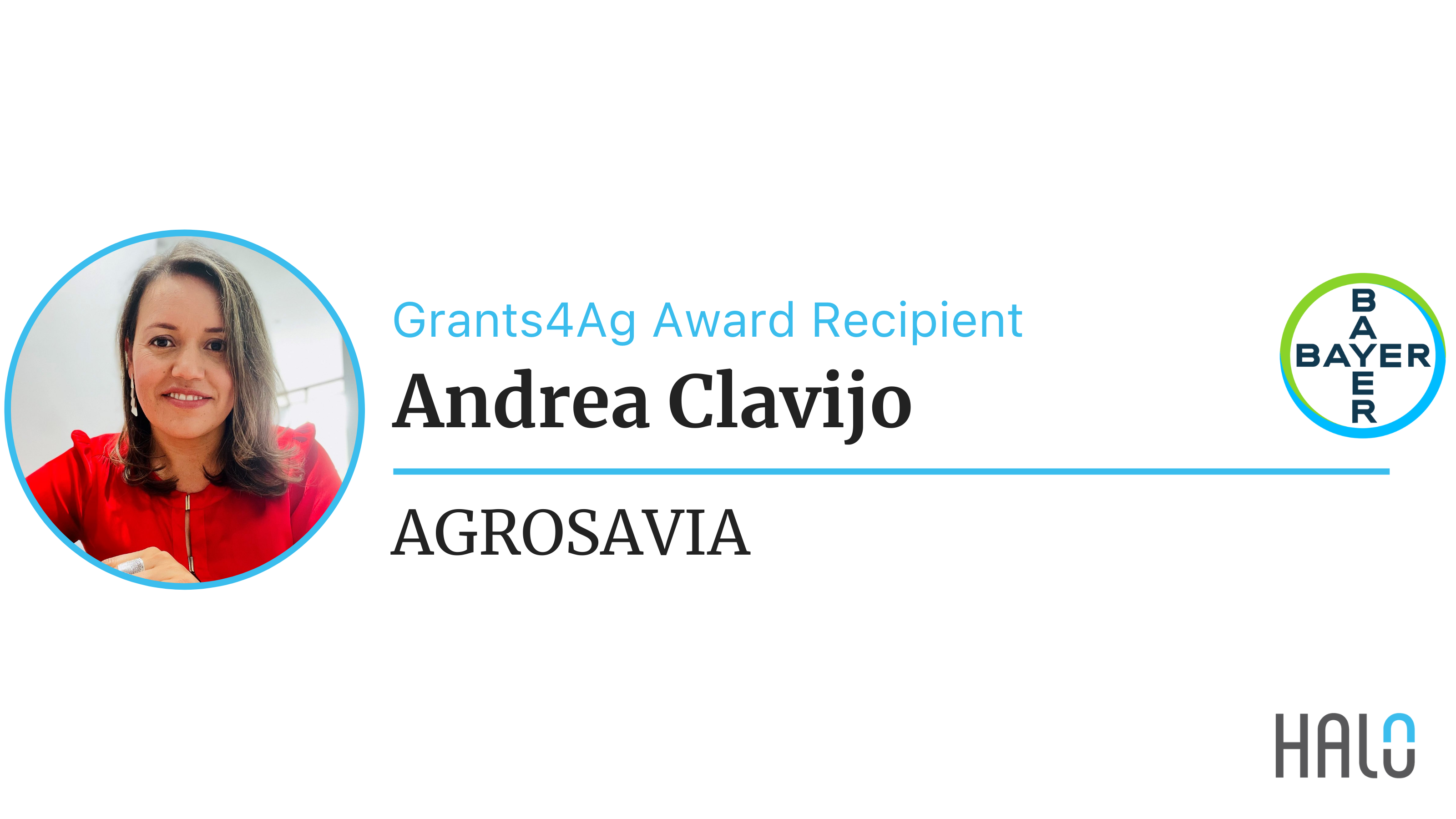Endophytes could be the key to sustainable crop disease management. Dr. Andrea Clavijo at AGROSAVIA is investigating these unique microbes in tomato plants as a potential tool to fight wilt disease. View Halo Profile >>
Tell us about your research.
Some evidence suggests endophytes may play a role in a plant’s natural resistance to disease. We will isolate and characterize endophytes from wild tomato genotypes showing high resistance to Fusarium oxysporum as an approach to identify potential biocontrol agents that can be used as part of sustainable management strategies for tomato crops.
Internal and external plant microbes are important to maintain healthy plants. Endophytes, the microbes living inside the plant, have shown to help its host in growth, defense, and nutrition.
Can you explain that to a non-scientist?
Internal and external plant microbes are important to maintain healthy plants. Endophytes, the microbes living inside the plant, have shown to help its host in growth, defense, and nutrition. We believe that plants that are resistant to a particular disease harbor particular microbes that can help them to defend themselves. We want to isolate those microbes in wild tomato plants resistant to wilt disease and study them for potential use to control the disease in tomato crops and reduce the use of chemical pesticides during production as an environmentally friendly alternative.
Why did you choose this area of research?
Our research group has been working for 6 years in the development of sustainable alternatives to tomato disease management, particularly to soilborne pathogens. We are trying to understand the plant-pathogen interaction from different perspectives, provide control management alternatives to farmers, and help them improve productivity at a low environmental cost. We also work towards the understanding and bioprospection of Colombian microbial biodiversity by isolating and characterizing plant-related microorganisms that can be used in biological control or plant-growth promotion.
We are trying to understand the plant-pathogen interaction from different perspectives, provide control management alternatives to farmers, and help them improve productivity at a low environmental cost.
How could your Grants4Ag project someday impact #healthforall #hungerfornone?
We have identified that one of the issues in tomato production, and generally for vegetable crops in Colombia, is the overuse of pesticides, which increases production costs, harms the health of farmers, and is environmentally unsustainable. This project is part of the research we have carried out to develop sustainable alternatives to reduce or replace pesticides and improve fruit quality in terms of chemical residuality. We aim to develop strategies with biological agents for tomato plants to control Fusarium wilt disease, reduce losses to the farmers, and produce a safer tomato fruit free from chemical residues.


